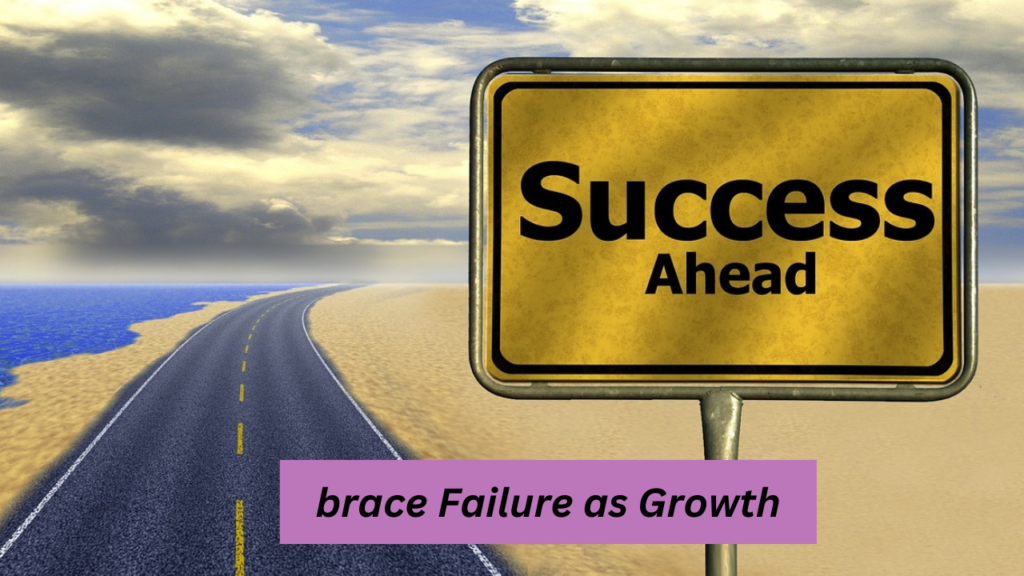Introduction
Have you ever wondered what it takes to truly succeed in life? Success isn’t just about achieving external milestones; it’s also about believing in yourself and having the confidence to pursue your goals. In this blog post, we’re going to explore “The Road to Success” by trusting oneself as a key factor in achieving success. We’ll delve into the importance of self-trust and provide practical tips for building and maintaining it, empowering you to embark on your own journey toward success.
Here are 5 ways to trust yourself on the subject of the road to success
1. Understand Your Inner Voice
Trusting yourself starts with understanding your inner voice. Self-awareness plays a crucial role in discerning between self-doubt and intuition.
It’s important to tune into your inner voice and learn to trust it. Your intuition can be a powerful guide, steering you in the right direction and helping you make decisions that align with your true desires and values. Take the time to reflect on your thoughts and feelings, and pay attention to the messages your inner voice is conveying.
By developing a deeper understanding of your inner self, you can cultivate a stronger sense of self-trust. This involves being honest with yourself about your strengths, weaknesses, and aspirations. Embrace your unique qualities and believe in your ability to navigate life’s challenges.
Moreover, surrounding yourself with supportive and empowering individuals can also bolster your self-trust. Seek out mentors, friends, and family members who believe in you and encourage your personal growth. Their validation and encouragement can reinforce your confidence and belief in yourself.
In addition, taking action and stepping out of your comfort zone is essential for building self-trust. Embrace new opportunities, pursue your passions, and don’t let fear hold you back. Each step you take towards your goals strengthens your self-trust and propels you forward on your journey to success.
2. Embrace Failure as Growth

Failure is often viewed as a negative outcome, but it’s an integral part of personal and professional development. Instead of fearing failure, embrace it as an opportunity for growth. Each setback presents valuable lessons that contribute to your overall growth and resilience.
By reframing your perspective on failure, you can strengthen your self-trust. Trusting yourself means having the confidence to navigate challenges and setbacks, knowing that you have the resilience to overcome them and emerge stronger than before. It’s about believing in your ability to learn from failures, adapt to new situations, and ultimately thrive in the face of adversity.
Moreover, failure provides an opportunity for self-reflection and introspection. When things don’t go as planned, take the time to analyze what went wrong and identify areas for improvement. This reflective process not only helps you learn from your mistakes but also reinforces your trust in your ability to overcome obstacles. Remember, failure is not a reflection of your worth or abilities; it’s simply a stepping stone on the path to success.
3. Set Authentic Goals

Trusting yourself also involves setting authentic goals that resonate with your passions and values. When you set goals that align with your true aspirations, you’re more likely to pursue them with determination and conviction.
Authentic goals provide a sense of purpose and direction, fostering a deep sense of self-trust. Take the time to reflect on what truly matters to you and set goals that reflect your authentic ambitions.
By doing so, you’ll find yourself on a path that aligns with your inner convictions, reinforcing your self-trust along the way. Authentic goals are not dictated by external expectations or societal norms; they stem from your genuine desires and interests. Whether it’s pursuing a career that fulfills your passion, embarking on a personal development journey, or making a positive impact in your community, authentic goals empower you to pursue what truly matters to you.
Moreover, setting authentic goals requires self-awareness and introspection. It involves understanding your strengths, weaknesses, and values, and aligning your goals with your unique identity. Take the time to explore your passions, interests, and values, and use them as guiding principles when setting goals.
Additionally, breaking down your goals into manageable steps can help build momentum and confidence along the way. Set clear and achievable milestones that mark your progress towards your larger objectives. Celebrate your accomplishments, no matter how small, and use them as motivation to keep moving forward.
Ultimately, trusting yourself to set and pursue authentic goals is a powerful act of self-empowerment. It allows you to live a purpose-driven life aligned with your true passions and values, fostering a deep sense of fulfillment and self-trust. Embrace the journey of self-discovery and goal-setting, and trust in your ability to create the life you envision for yourself.
4. Surround Yourself with Supportive People
The company you keep can significantly impact your self-trust. Surrounding yourself with supportive friends, family, or mentors can bolster your confidence and belief in yourself. Positive relationships provide encouragement, guidance, and a sense of belonging, all of which contribute to strengthening your self-trust. Seek out individuals who uplift and support you on your journey toward success. By cultivating a supportive network, you’ll find yourself better equipped to face challenges and pursue your aspirations with unwavering self-trust.
5. Practice Self-Compassion
Self-compassion is a fundamental component of building trust in oneself. Treat yourself with kindness and understanding, especially during times of difficulty or self-doubt. Cultivate a practice of mindfulness and positive self-talk to nurture self-compassion. By embracing self-compassion, you can counteract self-doubt and develop a deeper sense of trust in your abilities and worth. Remember, being kind to yourself is an essential part of fostering self-trust on your path to success.
Conclusion
In conclusion, trusting yourself is a vital ingredient for success. By understanding your inner voice, embracing failure as growth, setting authentic goals, surrounding yourself with supportive people, and practicing self-compassion, you can strengthen your self-trust and pave the way for meaningful achievements. I encourage you to embark on your own journey toward self-trust, knowing that success begins with believing in yourself. I invite you to share your experiences and insights related to trusting yourself on the road to success. Let’s continue this conversation and support each other in our pursuit of self-trust and success.
Visit our website to learn more ” success “
share acticle Thank you












